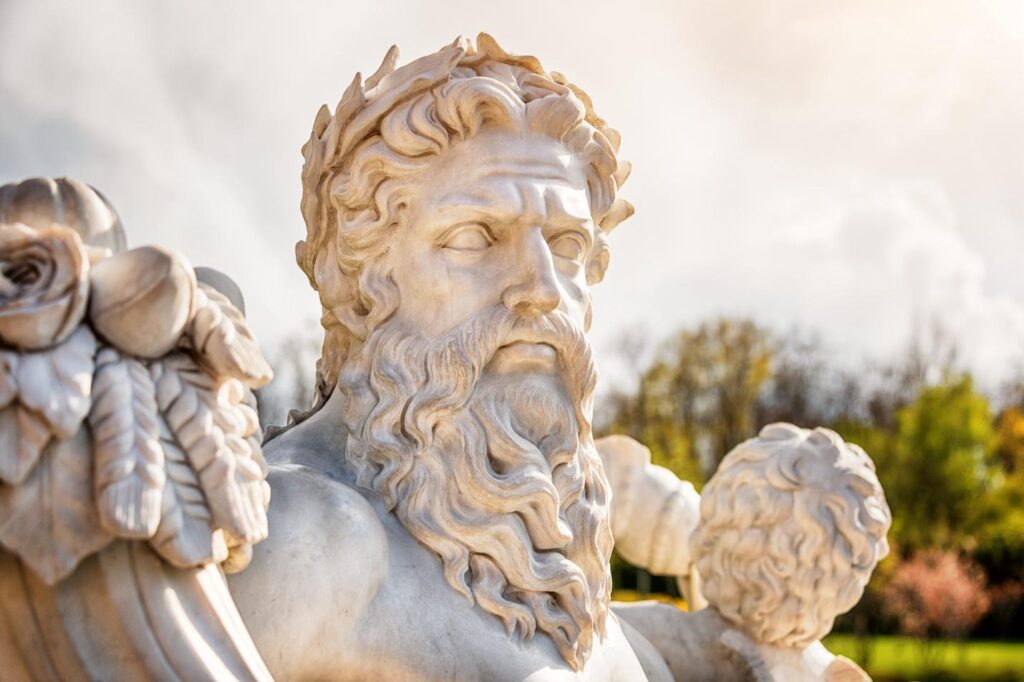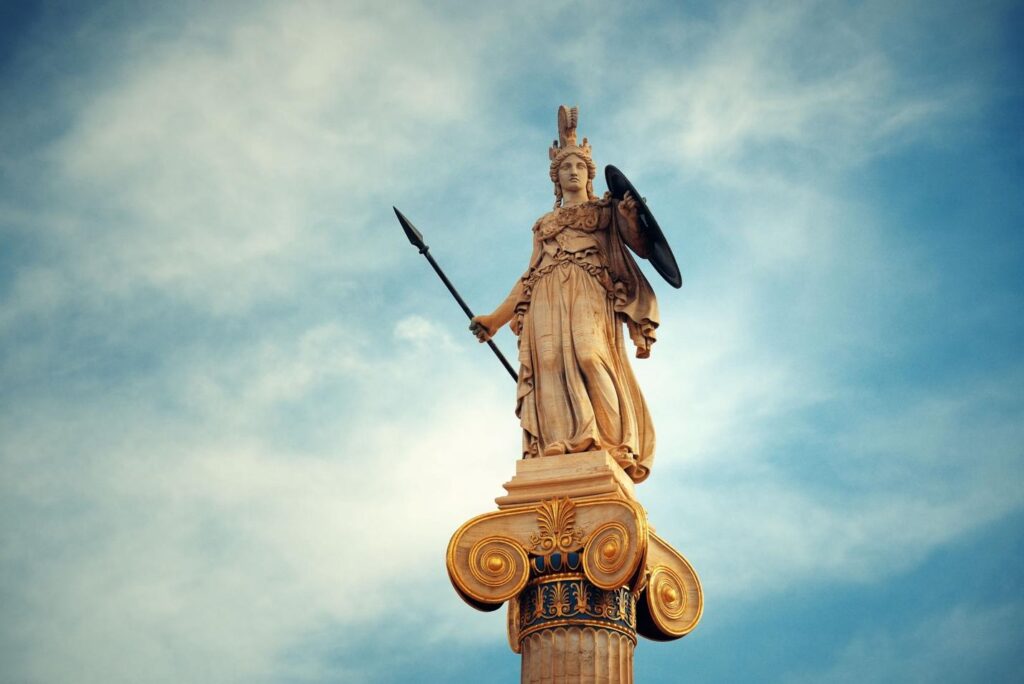In the world of ancient Greek religion, there were twelve Olympians, featuring famous characters from lore such as Zeus, Hera, and Poseidon. There have been many tales written about them, and some of the great works of literature by Homer and Aristophanes explore the powers, passions, and foibles of these Greek gods.

From modern literature to movies and video games like God of War and Age of Mythology, tales from Greek mythology have been revived countless times. Even visitors to online casino sites can explore the ancient world, thanks to a myriad of slot titles focusing on the era. Video slots like the aptly named Gates of Olympus dive heavily into the theme, bursting with characters, symbolism, and beasts.
So, the theme of the 12 Greek gods who sat on Mount Olympus resounds loudly to this day. But who were the original Olympians, whose presence to this day can still be felt culturally around the world?
Origin of the Gods
First, there were what were called the primordial deities, Gaia and Uranus. From them sprang forth the Titans, the two most important being Cronus and Rhea who, together, had six children that would go on to become the primary six Greek gods: Zeus, Hera, Poseidon, Demeter, Hades, and Hestia.
After Zeus, Poseidon and Hades drew lots to see who would rule heaven, earth, and the seas. Hades went to the Underworld and isn’t considered one of the twelve Olympians. The additional spots on Mount Olympus were made up of the children of Zeus.
Zeus
The king of the Greek gods, who imprisoned the remaining Titans in the Underworld after leading a 10-year war against the previous immortal rulers. He and his offspring won and took up their seat of power on Mount Olympus. The main symbol of Zeus is his thunderbolt, which he throws in anger as ruler of the sky and thunder.
Poseidon
A brother of Zeus, the trident-carrying Poseidon was given the underwater realms to rule over when the Titans were defeated. Even as God of the Sea, Poseidon had the power to cause earthquakes and storms.
Hera
The wife and sister of the promiscuous Zeus. The Goddess of the Skies was revered by mortal women for her strength and was worshiped as the Goddess of Marriage and Birth. As Goddess of the Skies, she could control clear skies or create storms.
Demeter
The Goddess of the Harvest was responsible for the fertility of the earth. Along with the power to control the crops, she could shape-shift into creatures like snakes and horses.
Hestia
Hestia was the oldest of the original six Olympians and the Goddess of Fire, the Hearth, and Family. Hestia is sometimes replaced on the list of 12 Olympians with Dionysus, who is the God of Wine and a son of Zeus.
Aphrodite
The Goddess of Love and Beauty, Aphrodite’s origin story differs in places, but she is still a big source of inspiration in modern culture. While possessing the power to make people fall in love, her main symbol was the dove.

Athena
Athena was the Goddess of Wisdom and War. Portrayed as a pillar of strength, she was revered for level-headed reasoning and was a protector. Her famous symbol is the owl.
Artemis
The Goddess of the Hunt, Virginity, and Archery, among other things. Artemis is commonly shown in a strong stance carrying a bow and arrow. She had other big symbols, including the moon and deer.
Apollo
Apollo and Artemis were twins, and Apollo became the God of the Sun and Light. He was also into his archery and is seen as a model of manly perfection. He possessed the power to heal and cause plagues.
Ares
The God of War was written as an outsider in myths, respected by none of his siblings or other gods. His main power was simply inciting violence and war through trickery, and he is often depicted with a spear and shield.
Hephaestus
A blacksmith, often shown with a hammer. Hephaestus was forced by Zeus to marry Aphrodite and, with the ability to control fire, he is the God of Volcanoes.
Hermes
For those lists without Dionysus, Hermes is the youngest of the Olympian Gods. He was the messenger of the gods and of travel, with the job of guiding dead souls to where they needed to go. His staff, around which are wrapped two snakes, is called the Caduceus, like the one used in modern medicine.
Modern Appeal
There is great appeal in the characters from Greek mythology. Many of their supposed traits and powers resonate with culture today as the roles that the gods allegedly played in residing over mortal humans were huge, like war, love, and harvest.
So, woven within the tales and poetry of the stories from the Greek myths is the reality of day-to-day existence, whether that’s guided by the hand of a god or not.
Famous powerful characters like Zeus have appeared in cinematic releases. The Olympic Games, names like Jason, Helen, and Penelope, plus famous brands like Nike and Pandora, along with NASA’s Apollo program, have all taken influence from Greek mythology.
